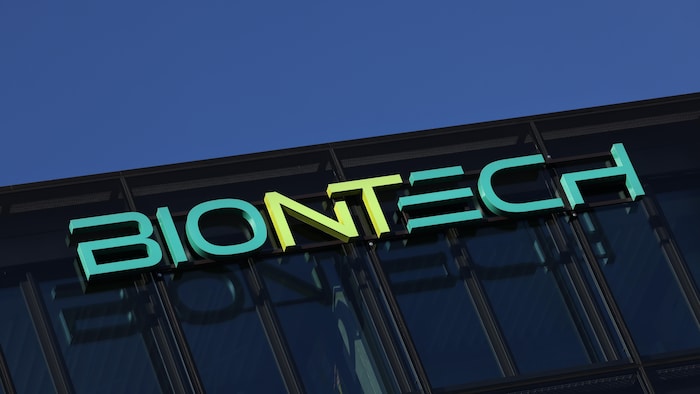Open in full screen mode The laboratory hopes to obtain authorizations for ten of its treatments by 2030. Agence France-Presse The German laboratory BioNTech, which developed one of the innovative vaccines against COVID-19, indicated on Wednesday that it is aiming to commercialize a first treatment against cancer in 2026, in particular using RNA technology. messenger (mRNA). The company plans to continue developing its projects with a view to its first launch in oncology planned for 2026, BioNTech said in a press release on the occasion of the publication of its annual results. BioNTech is currently working on several therapies against different cancers [melanoma, prostate, head and neck, ovarian, lung, colorectal], immunotherapies and vaccines, currently in the development phase. #x27;clinical trials. In all, the laboratory hopes to obtain authorizations for ten of these treatments by 2030, adds the press release. After selling millions of doses of its anti-COVID vaccine developed with the American giant Pfizer, BioNTech reinvested its profits in research against cancer, the initial specialty of this laboratory created in 2008 by two oncology researchers. Loading ELSEWHERE ON INFO: Yves Michaud, 1930-2024: the “Robin of the Banks” dies Loading ELSE ON INFO: Yves Michaud, 1930-2024: the “Robin of the Banks” dies out RNA technology messenger offers new perspectives for the development of innovative therapies against cancer which are the subject of intense competition between several players in the pharmaceutical world. The American laboratory Moderna, one of BioNTech's rivals, hopes that its therapeutic vaccine against skin cancer, currently in the process of being developed; trials, be approved from 2025. The therapies on which these companies are working aim not to fight directly against cancer cells, but to strengthen the immune system patients to fight cancer. One of the difficulties is to deal with the heterogeneity and variability of cancers, different from one patient to the next. another, by combining different mechanisms of action, explains BioNTech. […] There are many types of cancer at different stages and the disease differs from one patient to another, explained Ugur Sahin, co-founder of BioNTech, to the newspaper Bild, in November. Decoding all the possible mutations is a long-term task, making the development of treatments against these diseases more complex than that of a vaccine against COVID-19. Our goal is to develop a tailor-made cancer vaccine for each patient, Mr. Sahin told Bild. After the jump in revenue thanks to sales of the anti-COVID vaccine, the company based in Mainz (west of Germany) saw its turnover return to normal, at 3.8 billion euros (approximately CA$5.6 billion) last year compared to 17.3 billion (nearly CA$25.5 billion) in 2022. Annual profit fell to €930 million (around CA$1.37 billion), ten times lower than the previous year previous.
Yves Michaud, 1930-2024: the “Robin of the banks” turns off
Yves Michaud, 1930-2024: the “Robin of the Banks” dies out
BioNTech hopes for first anti-cancer drug in 2026

